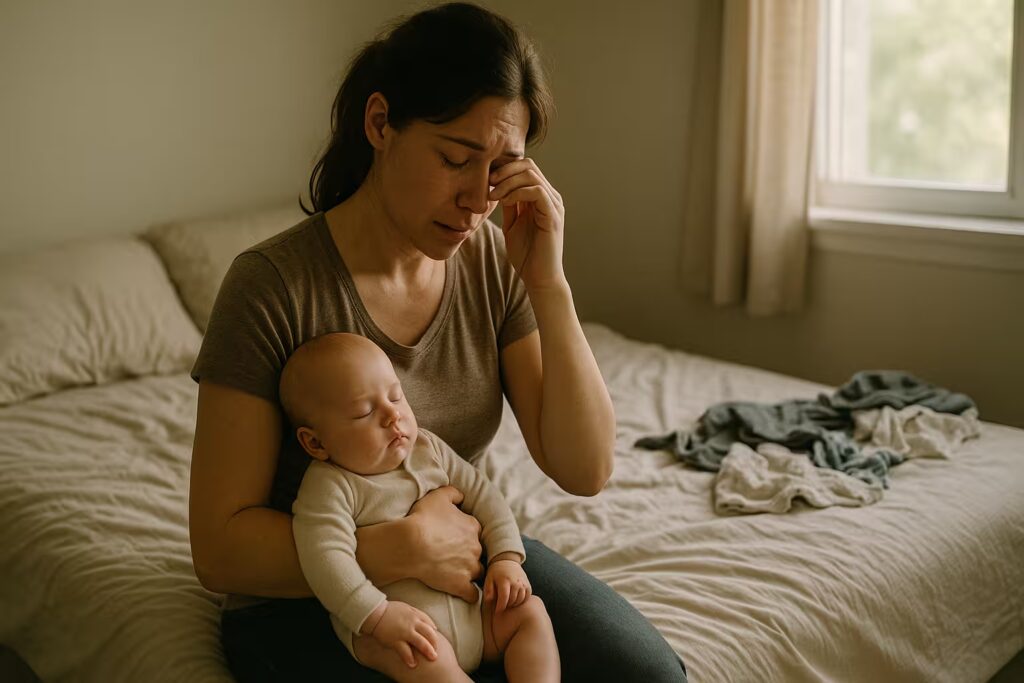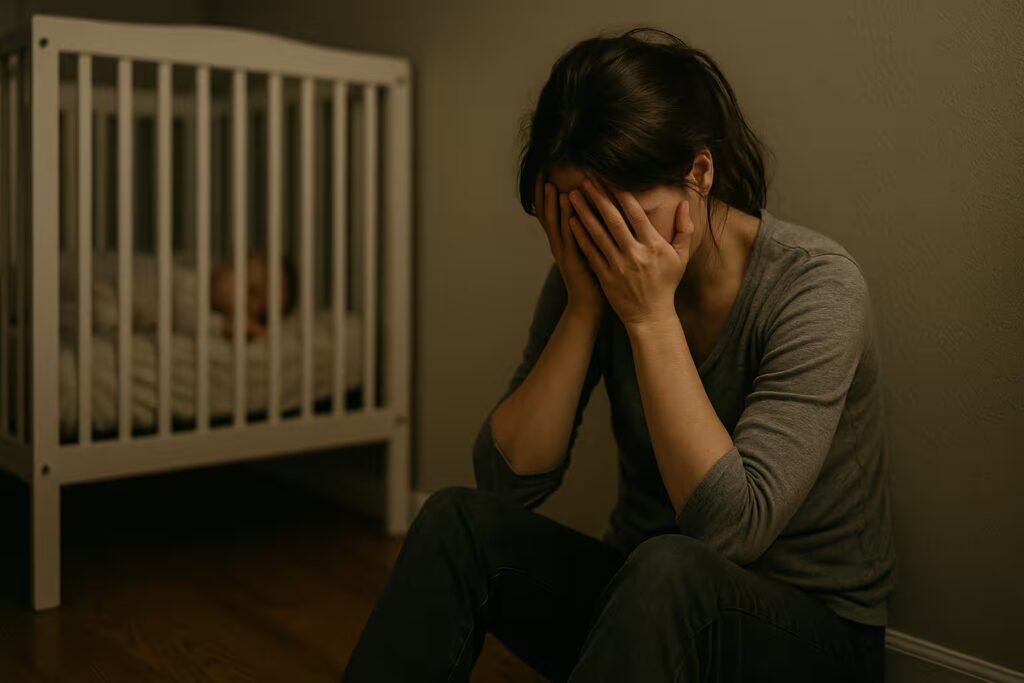Baby Blues or Something More? Knowing the Difference

One minute you’re staring at your baby like they’re the most perfect thing on earth. The next, you’re sobbing into yesterday’s toast because someone used the last clean muslin.
Welcome to the emotional rollercoaster of new motherhood. But how do you know if what you’re feeling is just baby blues… or something more serious?
Here’s the short answer: If you’re asking the question, it’s worth looking at more closely.
What Are the Baby Blues?
Around 4 in 5 new mums go through this. It usually starts a few days after birth, right around when your milk comes in and your hormones are doing the cha-cha.
The baby blues can look like:
- Crying for no clear reason
- Feeling anxious or on edge
- Irritability (like rage’s little sister)
- Mood swings that hit harder than a season finale
- Trouble sleeping even when the baby sleeps
It tends to peak around day 3 to 5, and then fade within two weeks. If it passes quickly and you start to feel more like yourself, it was probably the baby blues.
When It Might Be More Than That
If the tears keep coming weeks later, or the fog’s getting thicker instead of lifting, this could be more than hormones.
Watch out for:
- Feeling hopeless, numb, or like you’re failing every day
- No longer enjoying anything (even cuddles, coffee, or reality TV)
- Struggling to bond with your baby
- Feeling anxious all the time, like something terrible is about to happen
- Obsessive thoughts or compulsions (e.g. checking if baby’s breathing every 30 seconds)
- Rage that makes you feel out of control
- Thinking your baby, partner or the world would be better off without you
If any of that feels familiar, please know you’re not alone. These are symptoms of perinatal mental health conditions like postnatal depression, anxiety or OCD — and they’re treatable.
You Deserve Help, Not “You’ll Be Fine”
One of the hardest parts? These struggles often hide behind the “happy new mum” mask. You might be smiling in photos while silently drowning. But there is zero shame in saying, “Actually, I’m not okay.”
Talk to your GP, maternal health nurse, or call a support line. Help might look like therapy, medication, more rest, or actual support (not just someone holding the baby while you do the dishes).
You’re not weak. You’re not a bad mum. You’re a human with a brand new brain on barely any sleep, recovering from one of life’s biggest upheavals.
Quick Check-In: Baby Blues or Something More?
Ask yourself:
- Is this getting better after two weeks, or worse?
- Can I enjoy anything?
- Do I feel like myself at all anymore?
- Are my thoughts scaring me?
If you're not sure, that's reason enough to check in with a professional. You don’t need to wait until you're at breaking point.
You're Allowed to Need Support
Motherhood is not meant to be done solo, silently, or perfectly. If your mental health is struggling, getting support is an act of strength — not surrender.
Try these resources (Australia):
- PANDA – 1300 726 306
- Beyond Blue – 1300 224 636
- Lifeline (24/7 crisis support) – 13 11 14
- Your GP or maternal child health nurse
Final Word? You’re Not Failing. You’re Feeling.
New mum emotions are messy. Some days are magical, some are pure survival. But if it feels like too much, too often — reach out. Things can get better, and you don’t have to do it alone.
Has your baby blues ever turned into something more? What helped you feel seen and supported? Drop a comment below, your story could be the lifeline another mum needs.






Responses